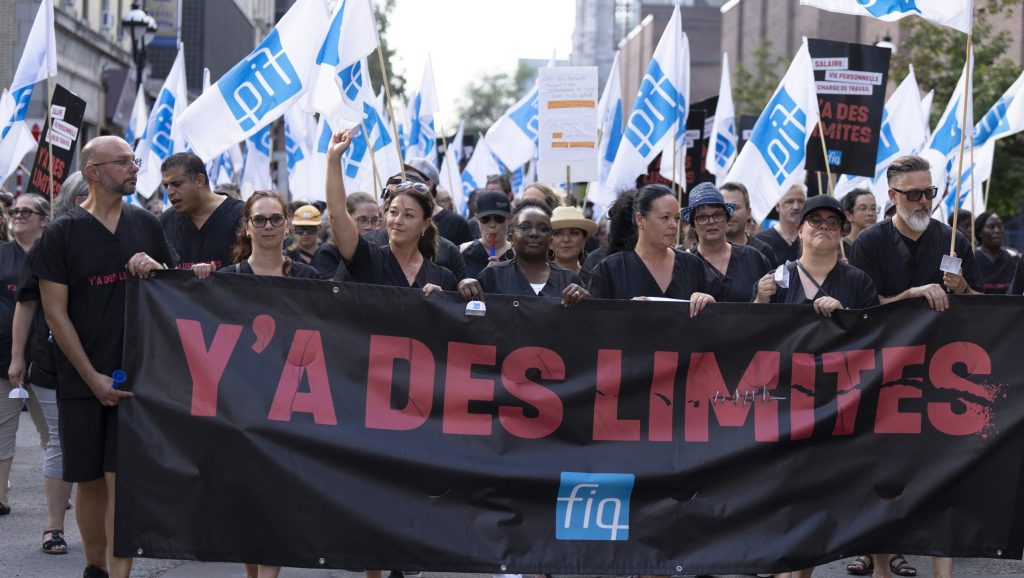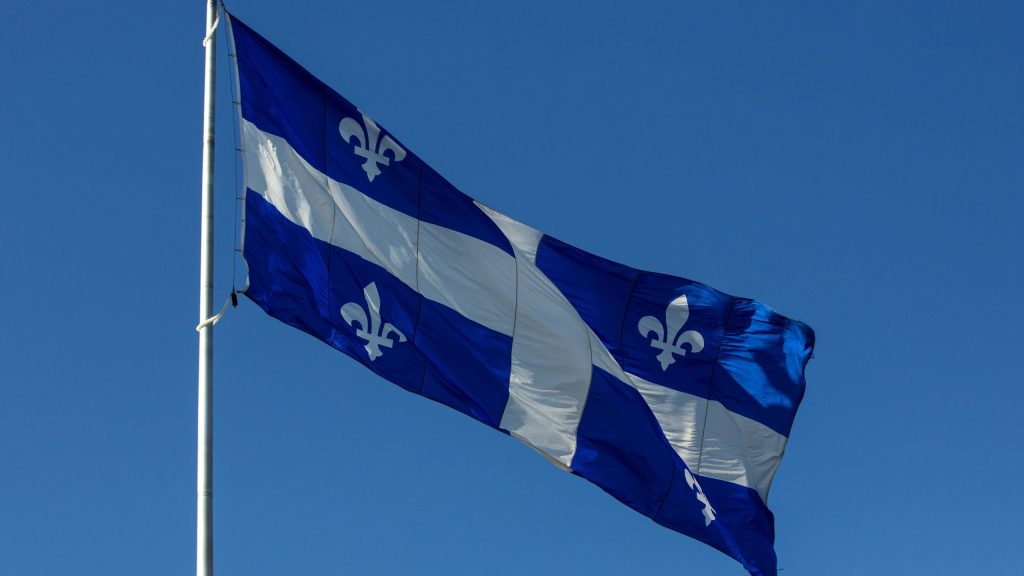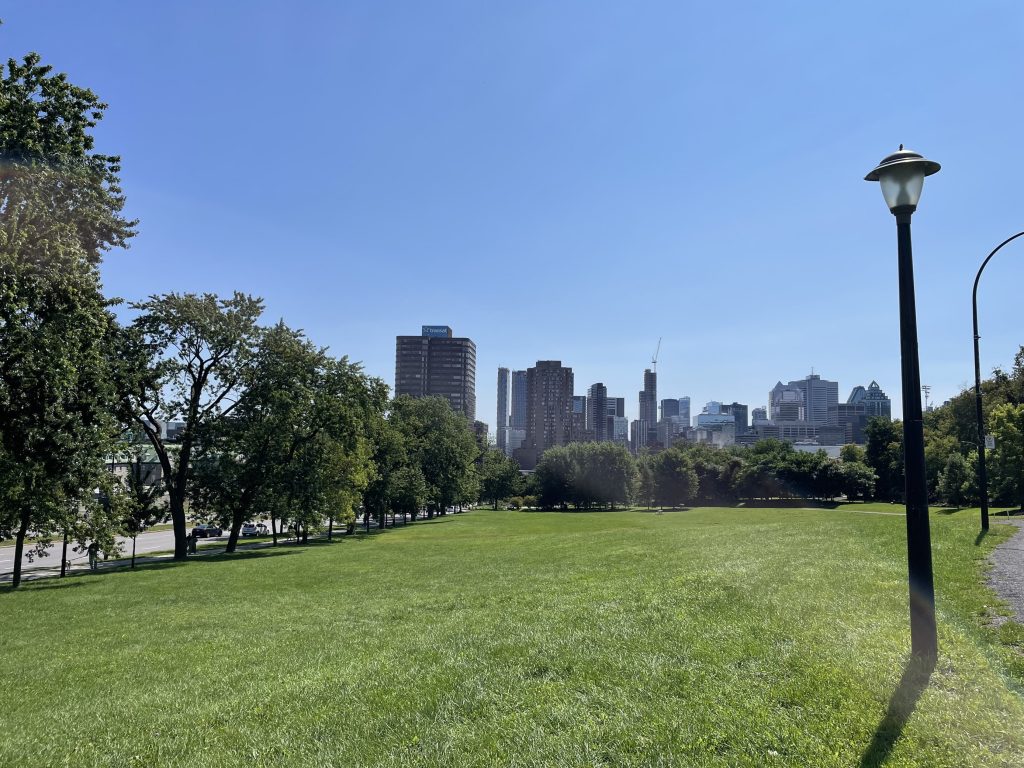McGill says police assistance requested to dismantle pro-Palestinian encampment
Posted April 30, 2024 4:00 am.
Last Updated April 30, 2024 7:20 pm.
McGill University says it “requested police assistance” late Monday afternoon to help de-escalate and dismantle an encampment that was set up on the lower field of the downtown campus on Saturday in support of Gaza.
In a statement issued Tuesday morning, McGill said it proceeded through all steps necessary in its protocols used for demonstration on Monday.
“We informed participants that this encampment was not authorized and gave them time to gather their belongings and leave the premises. However, most have chosen to remain,” the statement reads.
Montreal police confirm they received McGill’s request for assistance.
“We are evaluating the various possible avenues and are advocating for a peaceful outcome,” an SPVM spokesperson said.
Attorney Neil Gary Oberman filed an injunction at the Montreal courthouse Tuesday afternoon on behalf of two McGill students.
The injunction is asking for demonstrations not to be held within 100 metres of the entrances of the university’s 154 buildings for a period of 10 days.
Oberman is arguing the encampment of the university grounds is causing prejudice and irreparable harm. He says the plaintiffs don’t want to go to the campus because they don’t feel safe, and they believe encampment participants might block access to McGill.
A lawyer for some of the defendants named, including McGill’s student union, says the encampment doesn’t block access to school buildings, is peaceful, and has many Jewish participants. The defendants also say it’s an abuse of the court system and a means to stifle criticism of Israel.
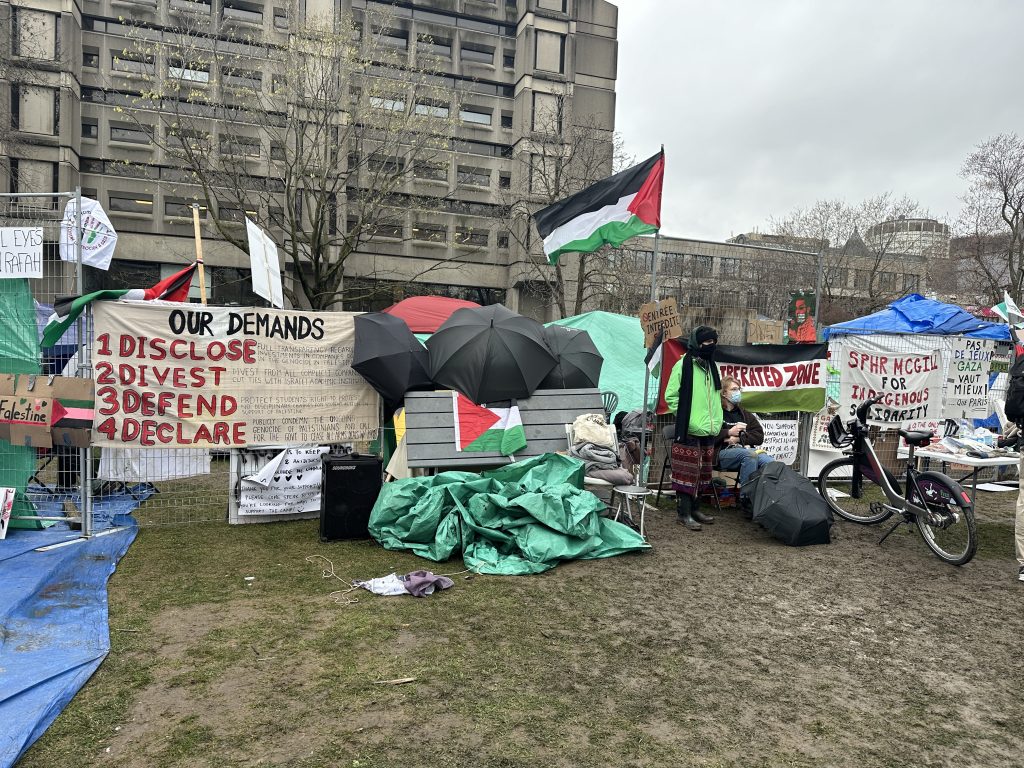
Many of the over 100 campers say regardless of police or a possible injunction, they’re planning to remain on the university grounds, with some vowing to defend the encampment.
“All over the world the narrative is changing,” said student Mohmed Emoussaini. “So I think it’s for the best that we stay here and the university has to understand that we will not go anywhere until they change their mind.
“We’re only here peacefully. As you see, there is nothing wrong being here. It’s also our right to protest and to demand the university to change their standards.”
Ari, a camp member with Independent Jewish Voices Concordia, says they are not surprised by the potential of police involvement.
“Not really, considering that we have written an oral permission of the Kanien’kéha Nation about being here and I don’t think McGill has taken that into account about whether we’re allowed to be in this camp or not, but I think things are unfolding,” they said.
Added Concordia University associate professor Alessandra Renzi: “I am not surprised. This is what universities have been doing all over the world instead of listening to the demands of the students.”
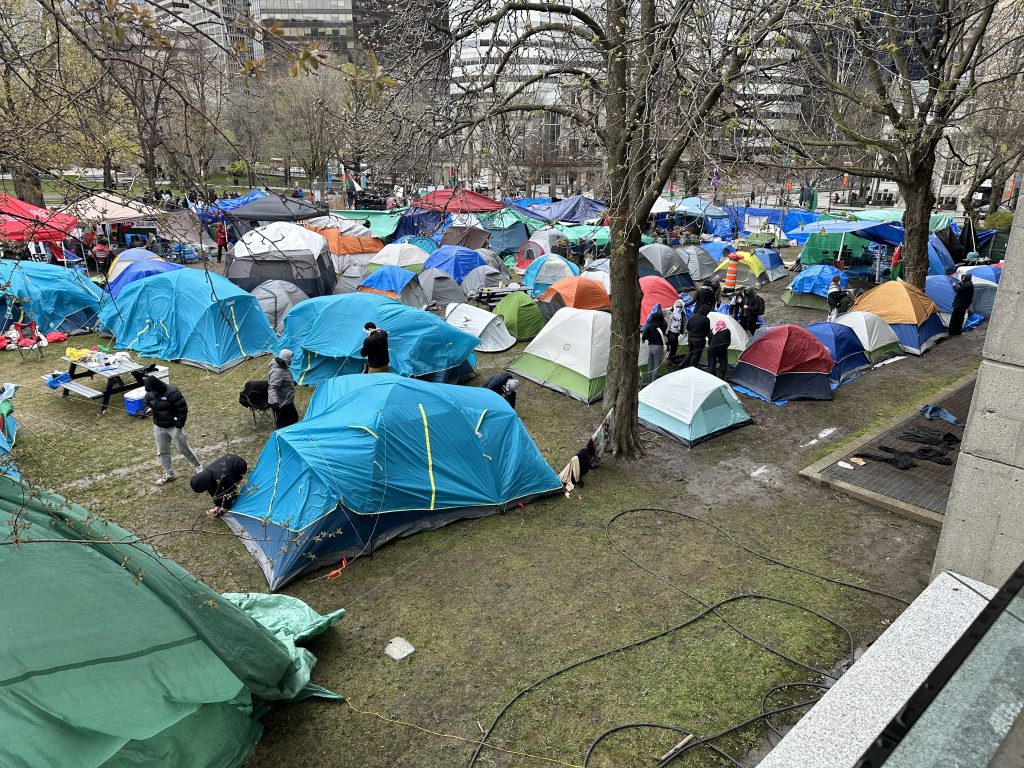
Dozens of tents have been pitched on the lawn of McGill’s downtown campus and the activists say they have no intention of dismantling them until McGill, as well as Concordia University, divest from all companies which they claim are “profiting from genocide.”
“We’re only students,” said Emoussaini. “We only want to stay here and just to share moments with our Palestinian community here and to show the world that we support them.”
The university said they were engaged in dialogue with representatives of McGill students. “As we have failed to reach a resolution, university leadership decided to take the final step in our protocol,” the university said.
Representatives of the SPVM who have expertise in resolving these kinds of situations have now started their own process, the university said. McGill says they have been communicating with police since the start of the encampment over the weekend.
WATCH: Two students file injunction against encampment at Montreal’s McGill
“Throughout, our goal has been to ensure the security of all, including encampment participants,” the university added. “The police understand our values as an institution and our commitment to protecting free expression and assembly within the bounds protected by the law and our policies. The safety and wellbeing of all our students and staff is our paramount concern.”
Peaceful, but some tense moments
All parties have acknowledge the protest has been peaceful, but there was a tense moment on Tuesday before noon.
A man wearing a cap with the Star of David walked into the fenced-off camp without authorization; those inside the barricades have been deciding who is allowed to enter. The man was escorted out by those in the camp.
“I just walking around, I didn’t even talk to anybody,” the man shouted.
McGill has said many of the activists, if not the majority, are not members of the school community and that it had seen video of some people using “unequivocally anti-Semitic language and intimidating behaviour,” but it did not provide further details.
“I come from a place of Judaism and so there’s a few things,” Ari told CityNews. “First of all, we’re going to precise the video itself. If you look at it, it’s not the people within the camp. It’s not the people that are here, organizers. These are part of the protesters. But is it true that during protests there are certain chants that can be heard and offensive for certain people? Obviously.”
‘A situation for McGill to try and manage’
Canada’s minister of justice and attorney general, a McGill alumnus, called it “a very complicated situation.”
“What I’ve always appreciated about universities are that they are a place for developing critical reasoning and critical thinking skills for students,” Arif Virani told CityNews. “And I always benefited from that when I was at McGill. But what I would say is that ultimately this is a situation for McGill to try and manage.
“We have constitutionally protected expressive rights, which are important, but there are limits on that expression, which include the fact that you cannot promote hate and you cannot intimidate.”
Virani says it is up to McGill to determine if property has been damaged, or if students are being impeded from studying.
“You know that universities are fundamental to the jurisdiction of the provinces,” he said. “So questions are best placed to McGill and to the province, how they’re managed in the province. If there is a reason to believe that the criminal law is being violated, then McGill obviously as any university should contact the police.”
Other encampments in Canada, U.S.
Pro-Palestinian protesters have also set up an encampment at the University of British Columbia’s Point Grey Campus, and the University of Toronto and the University of Ottawa have both warned that setting up encampments on campus will not be tolerated.
The encampments, which come just ahead of the end of final exams at McGill on Tuesday, follow a wave of similar protests across campuses in the United States linked to the Israel-Hamas war.
Encampment members have also demanded McGill divest from Israeli companies it says are advancing Israel’s military efforts in Gaza. They also want the school to cut academic ties with Israeli institutions.
UBC officials say they are monitoring the situation there and are reminding protesters to follow the university’s policy and the law while taking protest action.
B.C. Premier David Eby says student leaders and the administration should balance the need for free speech on campus with the need to foster safe spaces, especially for Jewish students during a time where they need additional support to feel safe.
-With files from The Canadian Press

